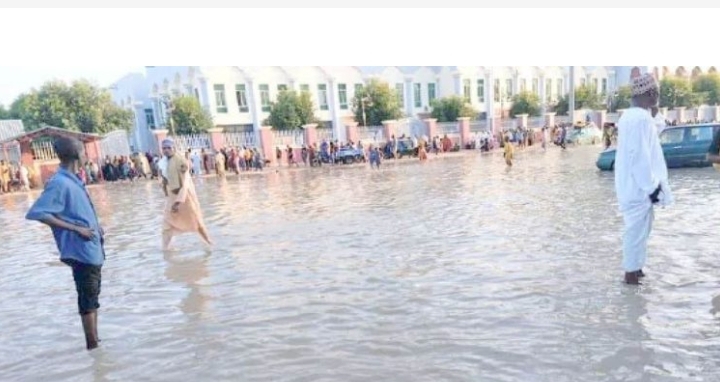Alau Dam Collapse in 2024: Experts Identify Factors that Stood Out
A member of the Nigerian Academy of Engineering (NAEng), and Vice Chancellor of the Federal University of Technology and Sciences, Iyin Ekiti, Professor James Aribisala has identified three crucial operational mistakes that resulted in the disastrous collapse of Borno State’s Alau Dam.
Alau dam collapse in 2024, causing catastrophic flooding in Borno that killed at least 150 people,
and displaced an estimated 300,000 residents.
He explained that the purpose of the dam which was irrigation was changed to water supply “without adequate consideration for operation and management”.
He also identified the silting of the dam as also one of the major contributors to blame because it reduced the storage capacity of the dam and “there were no reservoir release policy for operation of the dam”.
Presenting a paper titled ‘Alau Dam in Borno State: Lessons learned”, Aribisala, ”recommended that Alau dam should be converted to multipurpose dam.
“Dams designed as multipurpose should be operated as such. Example is Oyan dam. There should be daily inflow data collection for all dams in Nigeria. The code of practice for dam operation in Nigeria should be adopted for use in reservoir operation management,” he said.
He was speaking at this year’s public forum of the Nigerian Academy of Engineering held virtually in Lagos with the title: ‘Dam Infrastructure and Flood Risk Management
After the collapse, professionals from the NAEng visited the scene to access the situation and proffer lasting solutions. Apparently, this is their professional and expert analysis of the causes of the dam collapse.
Also speaking on ‘Flood Resilient Infrastructure,’ Engr Olamuyiwa Ajibola, another expert member of the Nigerian Academy of Engineering, blamed corruption, lack of political will responsible for low infrastructure in Nigeria and called for the construction of flood-resilient dams including promotion of local content and expertise.
Dr Funmi Coker who delivered a paper on ‘Environment and Climate Change Consideration’, called on the government to upgrade, and install infrastructure and other facilities for climate resilience, improve overall water management and access to international climate finance.
Earlier, in his welcome address, NAEng President, Prof Rahmon Bello, emphasised government’s patronage of local experts in the building and management of dams.
Bello, who was Vice Chancellor of the University of Lagos, also asked the government to put in place programmes that will help mitigate climate change.

